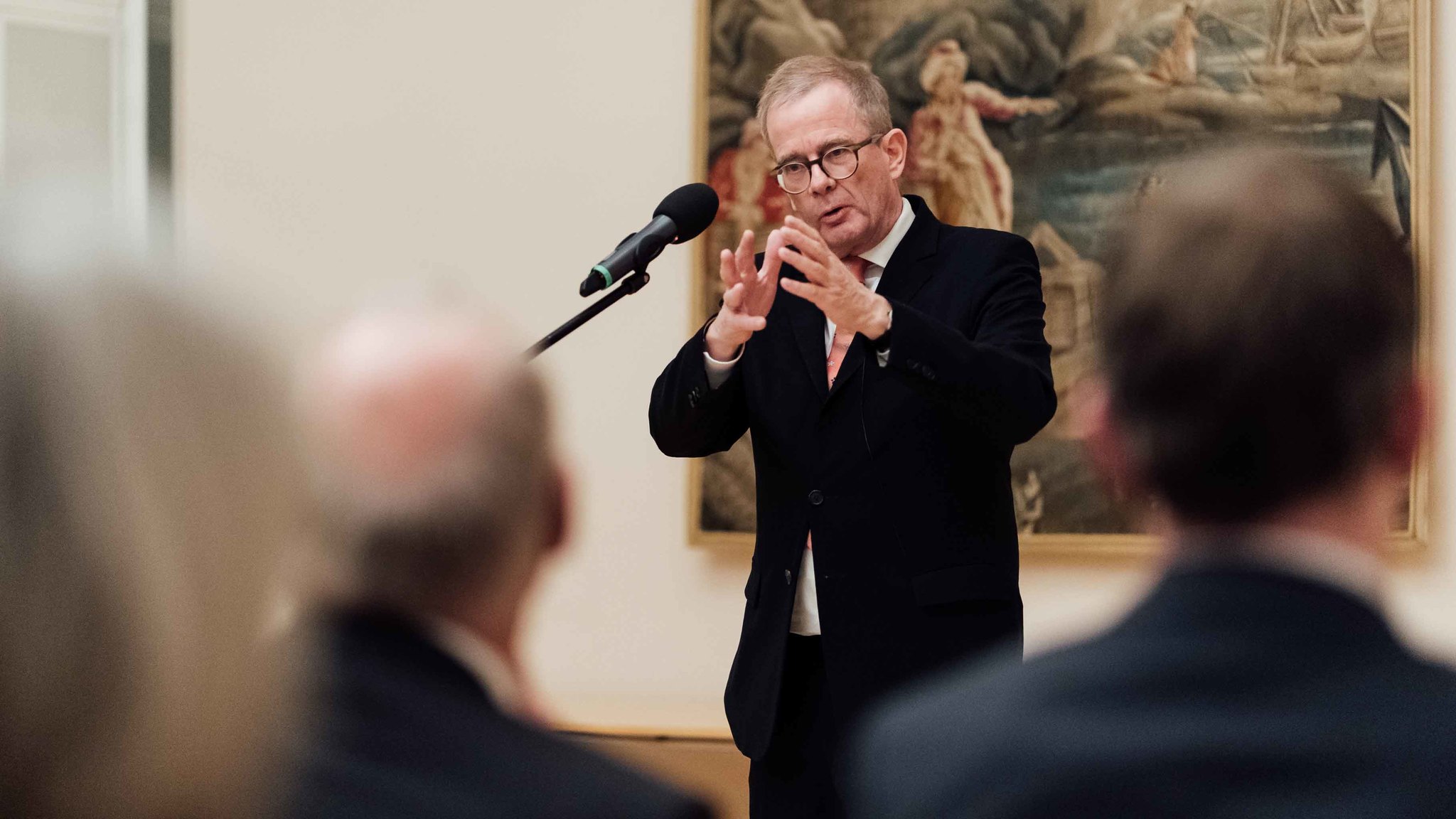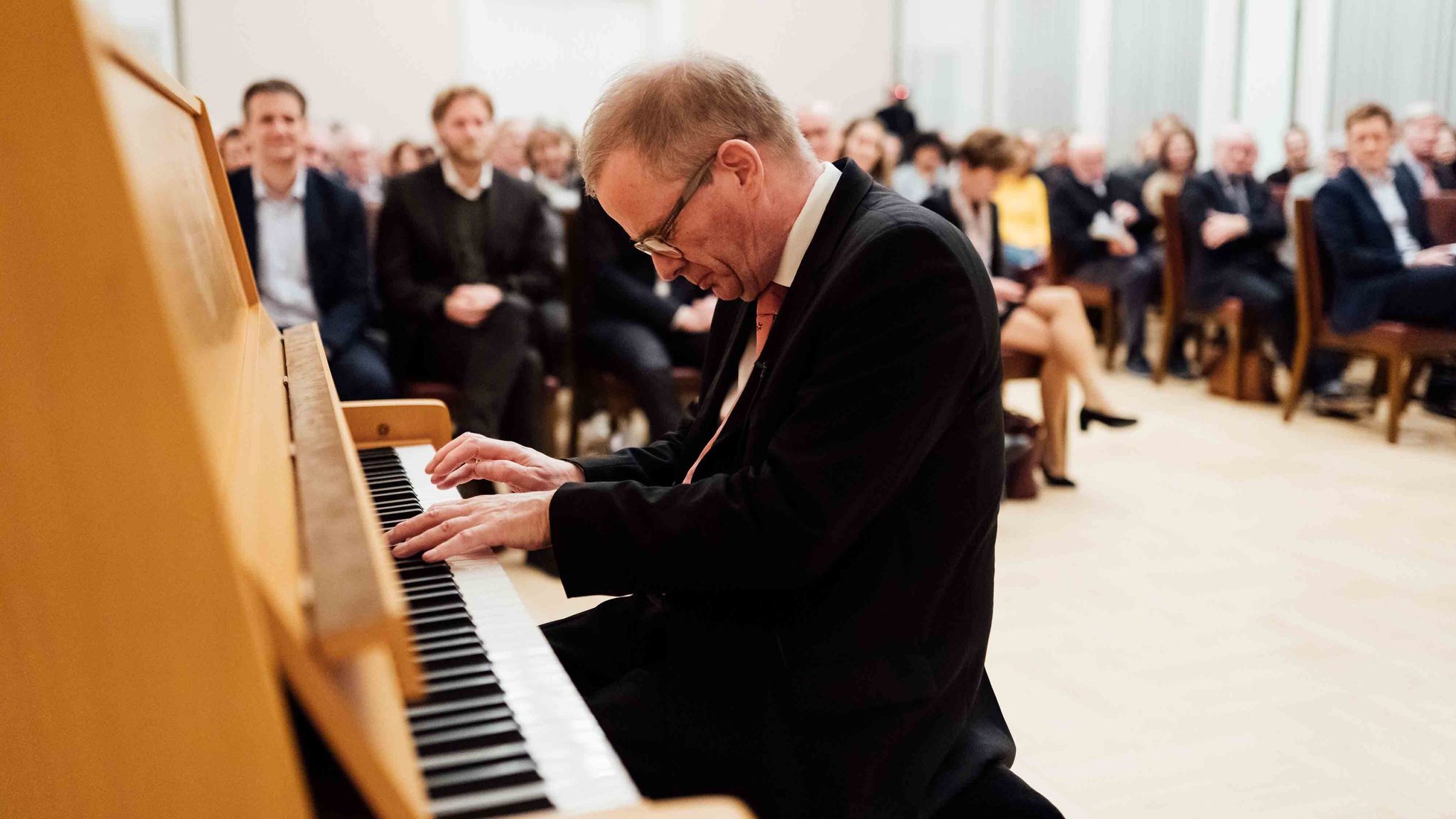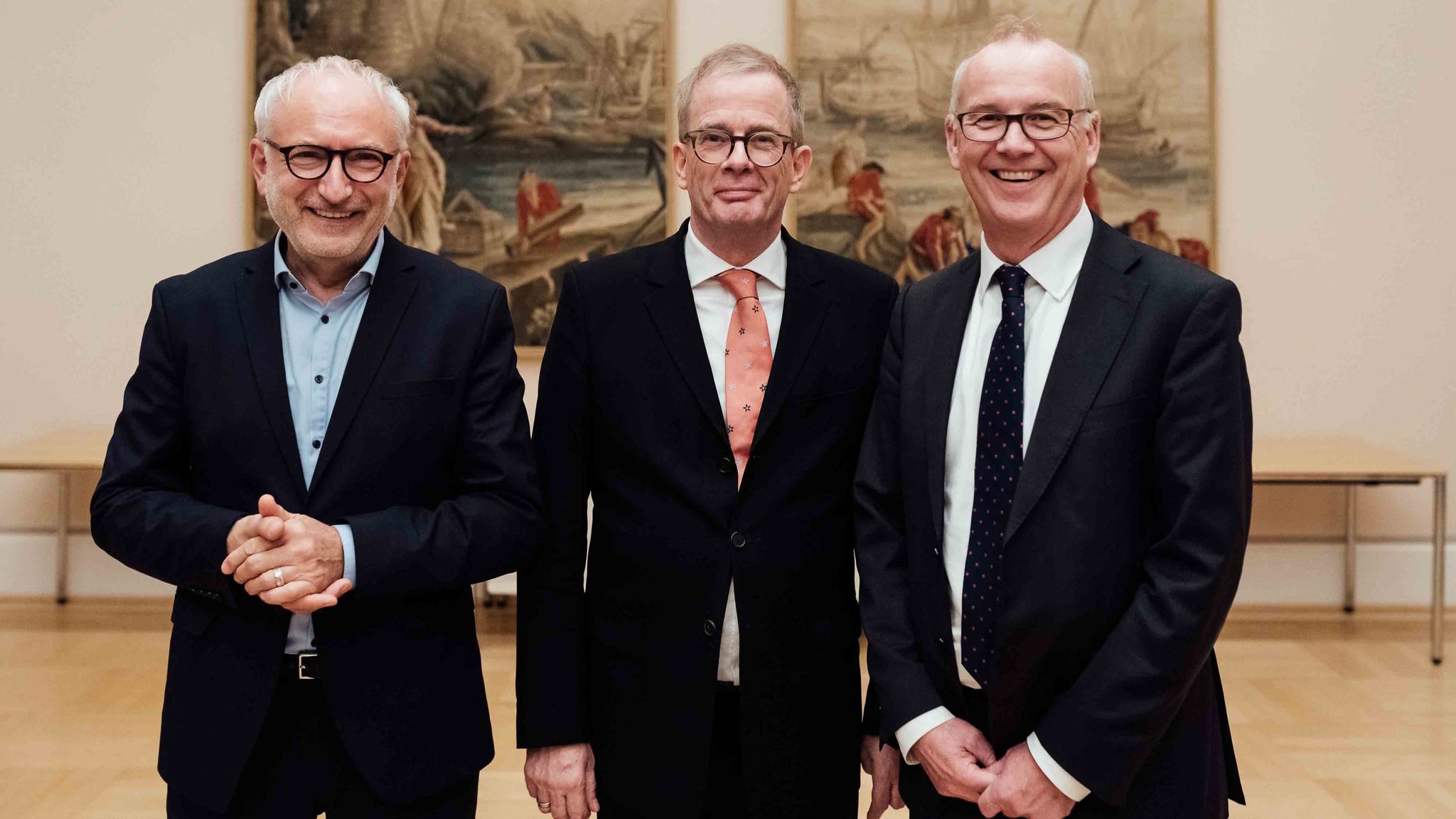
“Gratitude Has a Protective Function in Old Age”
Germany’s leading gerontologist tells us, what we must consider if we wish to age in a fulfilling way
The Heidelberg psychologist Professor Andreas Kruse does not speak of “old people” but rather of growing old. What does he mean by this? “A continual process of irreversible change in living substance.” Barring illness. Germany’s leading gerontologist ascertains; “Nature knows no leaps. Growing old is not an intermittent development but rather a continual change, which begins at an early age. A biomorphosis.”
“Ageing Society – Chances and Risks” is the topic of his talk at the 32nd Bremen University Talks event. The audience listen to the lucid and rhetorically unique talk (interspersed with poems recited by heart and piano music played by himself) as if under a spell. They offer their attention for more than an hour and one would be able to hear a pin drop. Why? Kruse makes statements about growing old that are everyone’s business.
Investing in Health
What is regularly forgotten concerning this topic is what he does not ignore: Social Inequality. “Avoiding illness is the upper end of the social scale. Suffering from illness is the lower end,” he says. This is “social and education-related framing.” Thus, if growing old is a change in form that is continual, one must invest in health and therefore in old age during the early years. “That is the central factor for healthy physical development in old age,” emphasizes the gerontologist repeatedly and emphatically. Prevention is the key word. In this regard, the guest praises the program of the Institute of Public Health and Nursing Research (IPP).
His research team at the Institute of Gerontology at Heidelberg University, of which he is the head, is continually starting to realize more and more what it means when young people have hardly any educational foundation. “Mortality is closely linked to the level of education,” says the expert and warns; “From childhood onwards, people must have access to an education that enables them to live responsibly.” As an example he names Type II adult-onset diabetes as a result of a poor diet. 15 out of 1000 children suffer from it.

Can people stall ageing or even reverse it? With regard to the latter, Kruse say no. “It cannot be the aim to live to 130 years of age.” However, the good news is that the DNA’s genetic code can always be reactivated. Those who are successful in avoiding DNA damaging factors from a young age train their DNA to repair cells. “You should see a nerve cell that learns in a neurobiological laboratory,” states the speaker in reference to the important factors of life-long learning. “Their electro physical activity, which they can pass on, radiates to other cells.”
Activity and Stimulation
In the frame of current social development with its demographic shift, it is important that the environment is socially, spatially, and culturally organized so that people over the age of 80 can live an ethically meaningful and harmonious life. The environment should offer activities, stimulation, and activating care for them. Even when vulnerability increases and the body is less controllable or understandable, the mental ageing process does function much like a maturation process. “Maturing with the confrontation of one’s own vulnerability,” says Professor Kruse.

“We need to make it clear that people of an advanced age have a great deal to say and to give to young people.” This communication between generations is very important to the speaker. He illustrates it using examples. His institute successfully brought 80 to 95-year-olds together with 8 to 10-year-olds in projects and thus gave them the chance to “care for each other.” If an older person does not have the opportunity to look after someone else that opens the door for depression. “The cultural capital of the aged needs to be utilized in society,” says Kruse. Maturity, vulnerability, care. Those are the key words of his talk.
Living with an Acceptance of Parting
The skill of living with an acceptance of parting is connected to gratitude for life,” says the expert and emphasizes that it is necessary to prepare oneself for old age. “Gratitude has a great protective function.”